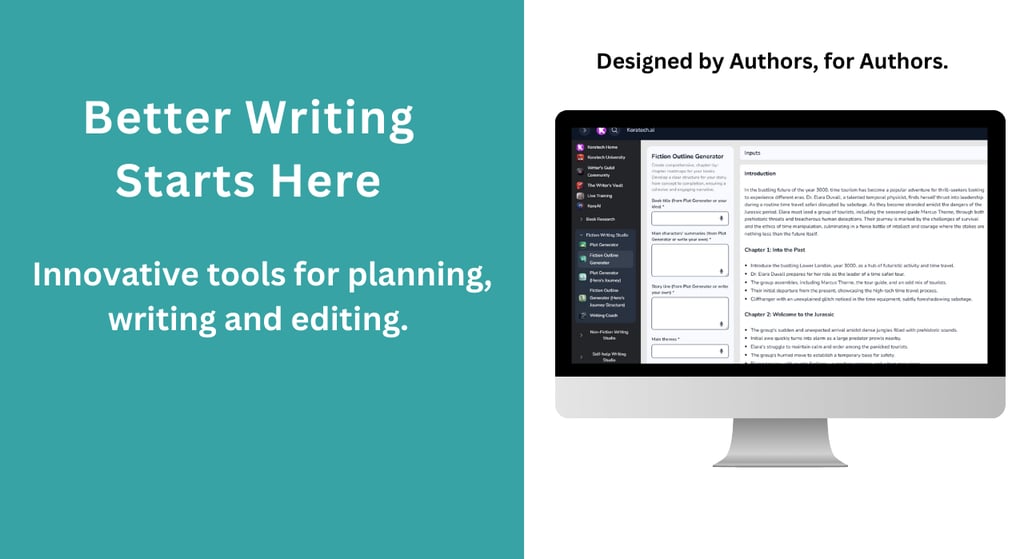The Moment Everything Changes: How to Master the Inciting Incident in Your Story
Master the art of crafting an inciting incident that hooks readers, propels the plot, and sets up the central conflict of your story.
WRITING & EDITING


The Moment Everything Changes: How to Master the Inciting Incident in Your Story
Introduction: The Spark That Sets the Story Ablaze
Every great story has a moment where everything shifts. A single event that shatters the protagonist’s ordinary world, propels them into the unknown, and forces them to make a choice. This is the inciting incident—the moment your readers will remember as the beginning of something extraordinary.
Whether it’s Frodo receiving the One Ring, Katniss volunteering as tribute, or Peter Parker getting bitten by a radioactive spider, the inciting incident is the first domino that sets the entire story in motion.
But crafting an effective inciting incident isn’t just about dropping in a dramatic event. It must:
Be personal to the protagonist
Disrupt their life in a meaningful way
Force a choice or reaction
Introduce the central conflict of the story
Hook the reader and raise compelling questions
Without a strong inciting incident, your story risks feeling aimless, slow, or lacking urgency. So how do you craft a moment that grips your readers and changes everything for your protagonist? Let’s break it down.
What Is an Inciting Incident? (And Why Is It So Important?)
At its core, the inciting incident is the event that upends the protagonist’s world and forces them into the story’s central conflict.
It is not just the first thing that happens in your book. The inciting incident is the moment where there’s no turning back—the protagonist’s life will never be the same again.
The Two Types of Inciting Incidents
Causal Inciting Incident (A Choice or Action)
The protagonist (or another character) actively causes the event that sets the story in motion.
Examples:
In Breaking Bad, Walter White chooses to cook meth after receiving a terminal diagnosis.
In Pride and Prejudice, Elizabeth Bennet chooses to attend the ball where she meets Mr. Darcy.
Coincidental Inciting Incident (An Unexpected Event)
Something outside the protagonist’s control forces them into the story.
Examples:
In Harry Potter, Harry receives his Hogwarts letter—an event he did not cause but must react to.
In The Hunger Games, Katniss witnesses Prim’s name being drawn, and she must make a decision.
Both types can be effective, but they must be deeply personal to the protagonist to drive them forward.
Crafting a Powerful Inciting Incident: What Makes It Work?
A forgettable inciting incident is just another plot event. A powerful one sticks with readers and keeps them hooked.
1. Make It Personal
Your inciting incident should directly impact the protagonist in a way that demands action.
Weak example: A mysterious letter arrives, but the protagonist doesn’t care much about it.
Strong example: A letter arrives with proof that the protagonist’s long-lost sister is alive—and only they can find her.
Why It Works: The protagonist has an emotional connection to the event, raising stakes and urgency.
2. Ensure It Forces a Decision
A strong inciting incident presents a fork in the road—the protagonist must choose whether to step forward or resist.
In The Lion King, Simba’s ordinary world collapses when his father dies. His decision? Stay and fight or run and hide.
In The Matrix, Neo takes the red pill—a clear moment where he chooses to step into the unknown.
If your inciting incident does not demand action, the story will stall before it even begins.
3. Establish the Stakes
Readers should immediately understand what’s at risk.
Weak: A character gets a new job but it doesn’t really change much.
Strong: A character gets a mysterious job offer that requires them to erase their past identity.
The higher the stakes, the more compelling the journey.
4. Set Up the Story’s Central Conflict
The inciting incident should connect directly to the overarching conflict.
In The Lord of the Rings, Bilbo passing the Ring to Frodo isn’t just about inheritance—it’s the first step toward a battle for Middle-earth.
In The Hunger Games, Katniss stepping forward isn’t just about saving Prim—it’s about rebelling against a corrupt government.
If your inciting incident doesn’t tie into the bigger picture, it risks feeling disconnected from the main plot.
5. Hook the Reader with Unanswered Questions
A great inciting incident leaves readers desperate for answers.
Examples:
Why was this ordinary person chosen for an impossible mission?
What will happen if the protagonist refuses the call to action?
What secrets are hiding beneath this event?
If your inciting incident raises immediate intrigue, readers will be eager to turn the page.
Common Mistakes to Avoid
Delaying the Inciting Incident Too Long – Your protagonist should be pulled into the story within the first 10-15 percent of the novel. If it takes too long, readers lose interest.
Making It Too Small – If the inciting incident barely disrupts the protagonist’s life, it won’t create enough momentum.
Ignoring Character Motivation – A great inciting incident should align with your protagonist’s fears, desires, or wounds. If they could easily ignore it, it’s not strong enough.
Too Much Exposition Beforehand – Jump into the action. Readers don’t need pages of backstory before the inciting incident. Let them discover details naturally.
How the Inciting Incident Shapes the Rest of Your Story
After the inciting incident, your protagonist must react. Their decision launches them into:
Act 1: Adjusting to the new world and conflict.
Midpoint: Realizing the true nature of their journey.
Climax: Facing the ultimate test that began with the inciting incident.
For example, in The Lion King:
Inciting Incident: Mufasa dies—Simba runs away.
Midpoint: Simba realizes he must face his past.
Climax: Simba returns to fight Scar.
Your inciting incident should create a ripple effect that influences the entire story.
Final Thoughts: Crafting an Unforgettable Inciting Incident
Your inciting incident isn’t just a plot point—it’s the heartbeat of your story.
Make it personal.
Force a decision.
Raise the stakes.
Tie it to the bigger conflict.
Hook your reader with unanswered questions.
A strong inciting incident grabs readers from page one and never lets go.
What’s your favorite inciting incident from books or movies? Drop a comment below. Let’s talk about how to craft openings that demand attention.


